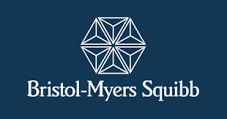
Bristol-Myers Squibb Company,a global biopharmaceutical company, announced that the China Food and Drug Administration (CFDA) has approved a direct-acting antiviral regimen comprised of Daklinza (daclatasvir) and Sunvepra (asunaprevir), for the treatment of treatment-naive or -experienced patients, with or without compensated cirrhosis, infected with genotype 1b chronic hepatitis C virus (HCV).
Bristol-myers squibb receives cfda, hcv daklinza